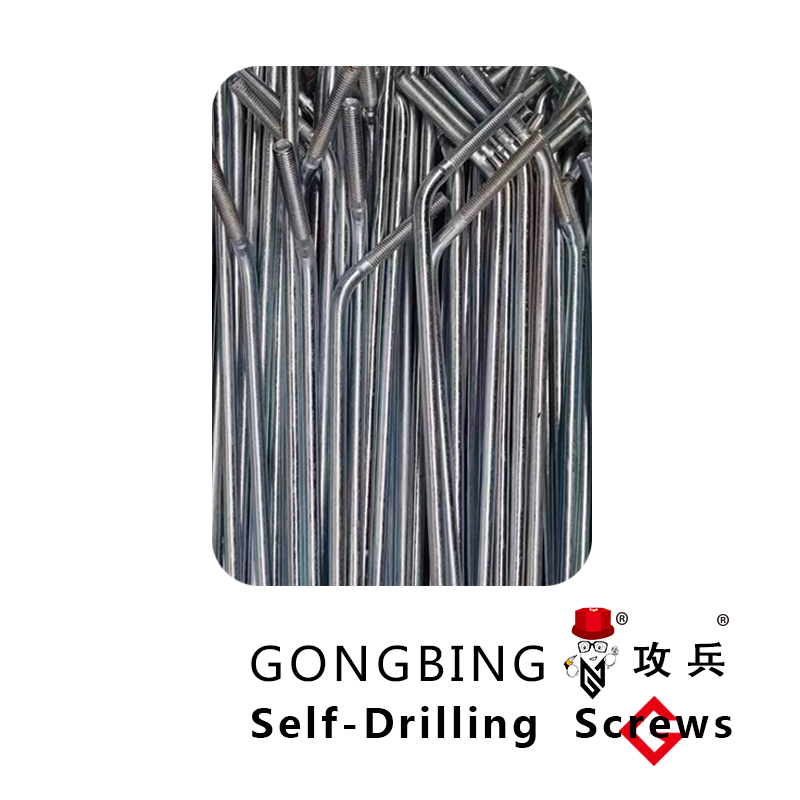Choosing the Best Self-Drilling Screws for Aluminum Applications and Construction Projects
Self-Drilling Screws for Aluminium An Essential Guide
When it comes to fastening materials like aluminium, self-drilling screws have become an indispensable choice for both professionals and DIY enthusiasts. These screws offer several advantages over traditional fasteners, particularly in terms of efficiency and ease of use. This article will delve into the features, benefits, and considerations when choosing self-drilling screws for aluminium applications.
What Are Self-Drilling Screws?
Self-drilling screws, also known as Tek screws, are specially designed fasteners that combine the functions of a screw and a drill bit in one tool. They feature a sharp, pointed tip that enables them to penetrate through the materials without the need for pre-drilling holes, making them particularly effective when working with hard materials like aluminium.
Benefits of Self-Drilling Screws for Aluminium
1. Time Efficiency One of the most significant advantages of self-drilling screws is the time they save. By eliminating the need for pre-drilling, these screws allow for quicker assembly and installation, which is beneficial in both commercial and residential projects.
2. Consistent Performance Self-drilling screws offer consistent torque and penetration depth, reducing the risk of stripping the screw or damaging the material. This is particularly important when working with softer metals like aluminium, where improper installation can lead to complications.
3. Clean Appearance The ability to drill and fasten in one step helps to maintain a cleaner work environment. This streamlined process reduces the amount of debris and cleaner-up tasks following installation, resulting in a more professional finish.
4. Versatility Self-drilling screws can be used in various applications, making them suitable for use in automotive, construction, and home improvement projects. Their versatility allows them to be used with different alloy grades of aluminium, enhancing their usability.
self drilling screws for aluminium

Choosing the Right Self-Drilling Screws
When selecting self-drilling screws for aluminium, several factors should be considered to ensure the best results
1. Material Composition Self-drilling screws are typically made from materials such as stainless steel, carbon steel, or zinc-coated steel. For aluminium applications, stainless steel screws are often preferred due to their corrosion resistance, especially in outdoor or marine environments.
2. Thread Design The design of the screw's threads plays a critical role in how well it will hold in the aluminium. Coarse threads are generally better for softer materials like aluminium because they provide a stronger grip, preventing the screw from loosening over time.
3. Screw Length and Diameter Choosing the right length and diameter of the screw is crucial for ensuring a secure hold. The screw should be long enough to provide adequate grip but not so long that it risks damaging any underlying structures.
4. Drilling Capacity The self-drilling capacity of a screw is often indicated by a number designation known as 'self-drill rating.' This rating will define the types of materials it can efficiently penetrate. Ensure that the chosen screw matches the thickness and density of the aluminium being used.
Installation Tips
When installing self-drilling screws into aluminium, it is essential to use the appropriate power tools. A variable-speed drill is recommended to avoid overheating the screw and damaging the material. Maintain consistent pressure while drilling to ensure clean holes without burrs or excessive shavings.
In conclusion, self-drilling screws are a practical and efficient choice for fastening aluminium. With their unique design and numerous benefits, they make projects quicker and easier while ensuring reliable performance. By considering the specific needs of your project and selecting the right type of screw, you can achieve excellent results in your aluminium applications. Whether you are a seasoned professional or a dedicated DIYer, incorporating self-drilling screws into your toolkit is a decision you won’t regret.
-
Weatherproof Plastic Expansion Anchors for OutdoorNewsJun.06,2025
-
Sustainability in the Supply Chain: Eco-Friendly TEK Screws ProductionNewsJun.06,2025
-
Load-Bearing Capacity of External Insulation FixingsNewsJun.06,2025
-
Double Head Bolts: Enhancing Efficiency in Industrial MachineryNewsJun.06,2025
-
Corrosion Resistance in Chipboard Screws: Coatings for Wholesale DurabilityNewsJun.06,2025
-
Butterfly Toggle Bolts : Enhancing Structural ResilienceNewsJun.06,2025
